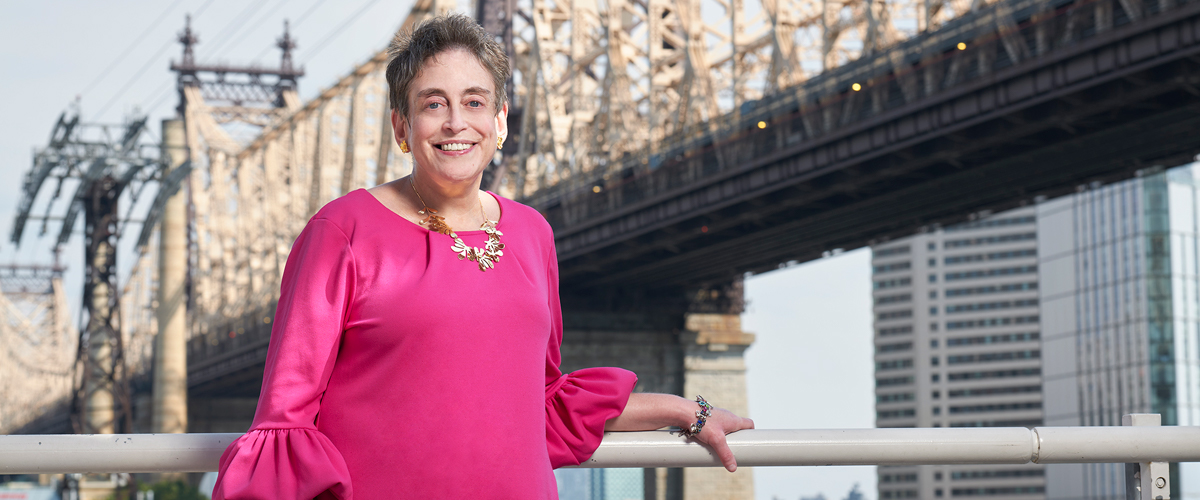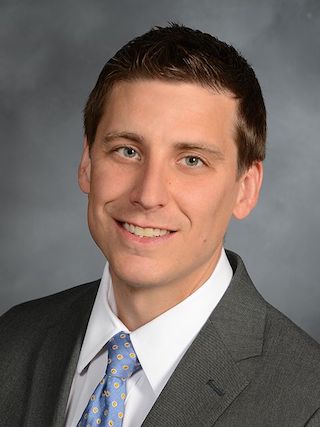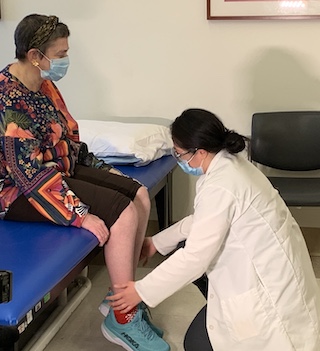The Road to Recovery After a Random Subway Attack
After Nina Rothschild was beaten with a hammer while entering a subway station, it took a team of specialists — and her remarkable resolve and positive attitude — to get her back on her feet. Today, she is riding the subway again.


Like many New Yorkers, Nina Rothschild begins and ends each day riding the subway to and from work — something just a few months ago she thought she would never do again.
For Nina, February 24, 2022, had been a typical day. She had gone to work at the New York City Department of Health and Mental Hygiene, where she is a city research scientist. But as she walked into a Queens subway station on her way home, as she had done so many times before, a person with a hammer came out of nowhere. Nina was brutally beaten over much of her head in a random attack.
“I kept yelling at him stop, stop, stop,” she recalls. Fortunately, two NYPD officers on the lower level of the platform heard Nina, came running up the stairs, and called an ambulance.
The attack left her with multiple open wounds and skull fractures, as Nina was rushed to the emergency department at NewYork-Presbyterian/Weill Cornell Medical Center in critical condition.

Dr. Justin Schwarz
Dr. Justin Schwarz, a neurosurgeon at NewYork-Presbyterian/Weill Cornell Medical Center, says that even though Nina remained remarkably calm and conscious, her wounds were quite serious. She had a series of lacerations all over the top and back of her head as well as two severe fractures. “The bone was struck so hard that it was pulverized — it was in multiple, multiple pieces,” recalls Dr. Schwarz. “You could actually see the bone through the open lacerations.”
“The last thing I remember is somebody putting the oxygen mask over my nose, and feeling a sort of sense of relief because now the treatment would begin,” Nina says.
Dr. Schwarz and Dr. Joseph Carnevale, a chief resident in surgery at NewYork-Presbyterian/Weill Cornell Medical Center, had the challenging task of piecing Nina’s skull back together. The two surgeons performed a complex three-hour surgery to repair her fractured skull and closed up her scalp lacerations using a combination of stitches and staples.
“I never really felt anger”
Dr. Schwarz says his biggest concern after Nina’s craniectomy was how well she would heal. But just about two weeks post-operation he witnessed her walking and regaining function through rehab. “It wasn’t until I saw her in rehab that I could breathe a sigh of relief and feel confident that she was out of the woods,” he remembers.
Despite this horrific ordeal, Nina has managed to maintain her sunny disposition. “I never really felt anger,” she says.
Her care team credits that positive outlook with aiding in her remarkable recovery. “She has had an amazing attitude throughout the whole thing,” says Dr. Schwarz, recalling how everyone on the team considered her a pleasure to work with. “She is certainly responsible for a lot of her recovery and how well she has done because she has always had a really positive attitude in working hard in rehab — she has undoubtedly maximized her potential.”

Nina recovered quickly thanks to her own determination, as well as the support of a care team that included NewYork-Presbyterian/Weill Cornell Medical Center physical therapist Erika Saji (above).
“I don’t know where she got that strength,” says Erika Saji, a physical therapist at NewYork-Presbyterian/Weill Cornell Medical Center. “She was so optimistic from day one. I’m just in awe of her.”
After months of outpatient physical and occupational therapy at NewYork-Presbyterian/Weill Cornell Medical Center’s Department of Rehabilitation Medicine, Nina finished her treatment in September. When initially asked during physical and occupational therapy what her goals were, Nina simply stated, “I just want my life back.”
Today, Nina is truly living her life to the fullest. She has gone back to work at the Department of Health overseeing its physician on-call program, which connects physicians with external providers during off-hours to advise on possible cases of infectious disease, and she continues to work on a COVID-19 mortality study. In October, she took a much-needed vacation to Italy.
And she is back commuting on the subway. While she remains cautious, Nina keeps on going, in true New York fashion. “As New Yorkers, we develop a certain toughness and endurance,” she says. “It may sound strange, but the power of connection, communication, and positive attitudes make my world go around. I keep on going every day because I love life.”

